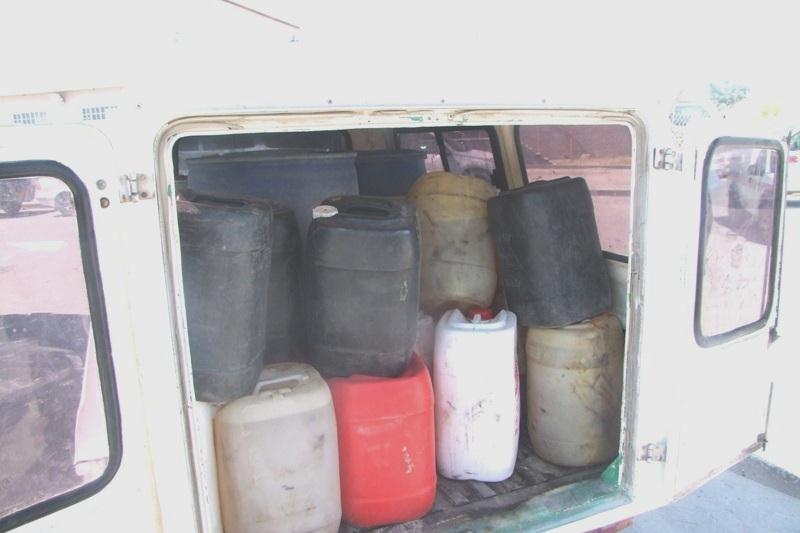Illegal fuel restricts local development
Illegal fuel does not meet the current specifications required in a modern world, the ministry of mines and energy says.
The ministry of mines and energy has warned motorists against refuelling their vehicles with “illegal fuel” as it hampers economic development.
The ministry’s acting economist in the directorate of petroleum affairs, Abednego Ekandjo, in a statement said local social media is awash with justifications for why people prefer to use the illegal fuel in their cars, ranging from affordability to supporting trade amongst African countries.
Fuel is a dangerous commodity. It must only be imported into Namibia, stored and distributed when those involved have met certain conditions such as operating a registered and licensed fuel wholesale or retail business, Ekandjo said.
“Those who are most vocal in support of this illegal fuel misunderstand the whole concept of why this fuel is illegal and why its use is being discouraged,” he said.
Ekandjo warned that the practice of going across borders to fill up vehicles affects Namibia negatively and contributes to retrenchments and unemployment, since the mainstream fuel industry employs thousands of Namibians.
Environment
The statement referred to road user charges as a case in point. Ekandjo said people drive on Namibian roads using illegal fuel on which a charge was not collected to keep the roads in good condition. Then they complain and blame the authorities for potholes or because a certain road is taking too long to be developed.
Namibia is a signatory to the Paris Agreement on Climate Change and is dealing with the mitigation of greenhouse gas emissions against other efforts to combat climate change. Namibia has therefore phased out leaded petrol and is in the process of phasing out high sulphur diesel as both are classified as harmful, said Ekandjo.
The fuel classified as illegal does not meet the current specifications required in a modern world, he added.
Building a modern refinery that can produce the right standard fuel will cost about US$10 billion, according to Ekandjo. “It is simply unaffordable for a developing country.”
“All in all, illegal fuel trading must therefore not be allowed to take a foothold in Namibia. The possible consequences will be too drastic to cope with,” Ekandjo warned. - Nampa
The ministry’s acting economist in the directorate of petroleum affairs, Abednego Ekandjo, in a statement said local social media is awash with justifications for why people prefer to use the illegal fuel in their cars, ranging from affordability to supporting trade amongst African countries.
Fuel is a dangerous commodity. It must only be imported into Namibia, stored and distributed when those involved have met certain conditions such as operating a registered and licensed fuel wholesale or retail business, Ekandjo said.
“Those who are most vocal in support of this illegal fuel misunderstand the whole concept of why this fuel is illegal and why its use is being discouraged,” he said.
Ekandjo warned that the practice of going across borders to fill up vehicles affects Namibia negatively and contributes to retrenchments and unemployment, since the mainstream fuel industry employs thousands of Namibians.
Environment
The statement referred to road user charges as a case in point. Ekandjo said people drive on Namibian roads using illegal fuel on which a charge was not collected to keep the roads in good condition. Then they complain and blame the authorities for potholes or because a certain road is taking too long to be developed.
Namibia is a signatory to the Paris Agreement on Climate Change and is dealing with the mitigation of greenhouse gas emissions against other efforts to combat climate change. Namibia has therefore phased out leaded petrol and is in the process of phasing out high sulphur diesel as both are classified as harmful, said Ekandjo.
The fuel classified as illegal does not meet the current specifications required in a modern world, he added.
Building a modern refinery that can produce the right standard fuel will cost about US$10 billion, according to Ekandjo. “It is simply unaffordable for a developing country.”
“All in all, illegal fuel trading must therefore not be allowed to take a foothold in Namibia. The possible consequences will be too drastic to cope with,” Ekandjo warned. - Nampa




Kommentaar
Republikein
Geen kommentaar is op hierdie artikel gelaat nie